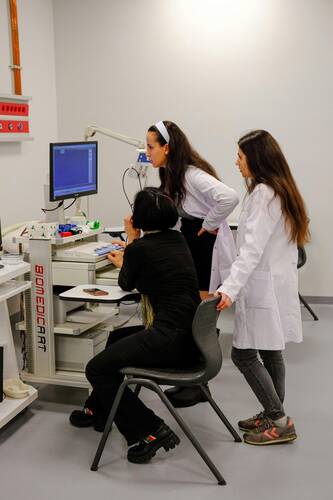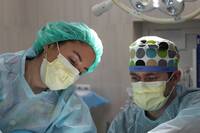7 Tips for Educating Community Leaders on Disaster Management
 Disaster management is a critical skill for community leaders. Whether it’s a natural disaster like a hurricane or an unexpected event like a large-scale power outage, being prepared can make all the difference. Community leaders are often the first point of contact for people seeking guidance and support during such times, which is why it's important for them to be well-educated in disaster management.
Education in disaster management equips leaders with the knowledge they need to handle emergencies effectively. It helps them understand what steps to take before, during, and after a disaster strikes. This preparation is key to minimizing the impact of disasters on their communities.
From learning the basics to engaging with the community, these tips cover the essential aspects of disaster management education. The following tips are designed to provide leaders with the skills and knowledge needed to respond to emergencies confidently:
(more…)
Disaster management is a critical skill for community leaders. Whether it’s a natural disaster like a hurricane or an unexpected event like a large-scale power outage, being prepared can make all the difference. Community leaders are often the first point of contact for people seeking guidance and support during such times, which is why it's important for them to be well-educated in disaster management.
Education in disaster management equips leaders with the knowledge they need to handle emergencies effectively. It helps them understand what steps to take before, during, and after a disaster strikes. This preparation is key to minimizing the impact of disasters on their communities.
From learning the basics to engaging with the community, these tips cover the essential aspects of disaster management education. The following tips are designed to provide leaders with the skills and knowledge needed to respond to emergencies confidently:
(more…)Can Medical Education Benefit from EHR Systems Integration?
- Integrating EHRs makes learning better for medical students.
- Improves doctor-patient communication.
- Offers easy access and better organization for students.
- Tackles challenges related to documentation and professionalism.
- Hands-on experience and simulation training are key for effective learning.
- Hospital policies and liability concerns can limit EHR access.
- Proper educational frameworks are crucial for successful EHR adoption.
- EHRs contain real-world scenarios and promote understanding of clinical workflows.
Breaking Through Barriers: Overcoming Common Challenges in Nursing Career Advancement
Burnout is a common issue in nursing, and it can be a significant barrier to career advancement. The physical and...
The Role of Nurse Researchers
Becoming a nurse researcher is one of the most intellectually stimulating career paths in nursing. Nurse researchers are at the forefront of healthcare innovation, conducting studies that directly impact patient care, healthcare policies, and clinical practices. Their work involves designing and implementing research projects, collecting and analyzing data, and publishing findings that contribute to the body of nursing knowledge. To excel as a nurse researcher, a strong foundation in scientific principles and a passion for discovery are essential. Typically, nurse researchers hold advanced degrees, such as a Master's or Doctorate in Nursing Science (DNS or PhD). Their research can cover a wide range of topics, from improving patient outcomes and healthcare delivery systems to exploring new treatments and interventions. Nurse researchers often collaborate with interdisciplinary teams, including physicians, psychologists, and other healthcare professionals, to address complex healthcare challenges. The impact of nurse researchers extends beyond the academic sphere. Their findings influence clinical practices, inform healthcare policies, and drive innovations in patient care. For nurses with a curiosity-driven mindset and a desire to contribute to the broader field of healthcare, research offers a fulfilling and impactful career. (more…)Unlocking Career Potential: Key Online Certifications for Caregivers and Effective Strategies
Why Online Certifications Matter
Online certifications offer a flexible and convenient way to enhance your caregiving skills. They provide you with specialized knowledge and make you more marketable to employers. Depending on the state, there might be certain certifications needed, which is why it's important to check before applying. A California caregiver certification might be required in LA or San Francisco when looking for a job, so places like Caregiverlist can help obtain it. In an industry where trust and competence are paramount, having recognized credentials can set you apart from the competition and open doors to new opportunities.(more…)
Tips for Choosing the Right Online Counseling Program
- Understanding the fundamental skills needed to excel in undergraduate studies.
- Ways to develop and enhance these skills for academic success.
- Practical tips students can apply immediately to improve their learning experience.
 Time Management
One of the most critical components of a successful undergraduate education is time management. Learning to prioritize tasks, set realistic goals, and adhere to a structured schedule can help students handle their academic workload efficiently. Investing in online undergraduate degree programs offers flexibility, enabling students to handle their academic tasks and other responsibilities efficiently. By integrating time management practices, students can avoid the stress of last-minute cramming and enhance the quality of their work.
A Forbes article discusses practical time management strategies that are beneficial for students. Strategies such as the Pomodoro Technique, where you work in short, focused intervals with breaks in between, can assist in maintaining productivity and preventing exhaustion. The Eisenhower Matrix, which categorizes tasks into urgent, non-urgent, necessary, and non-important, can aid in determining priorities. Time-blocking, or allocating specific time slots for different tasks, ensures that students dedicate adequate time to each subject and activity.
(more…)
Time Management
One of the most critical components of a successful undergraduate education is time management. Learning to prioritize tasks, set realistic goals, and adhere to a structured schedule can help students handle their academic workload efficiently. Investing in online undergraduate degree programs offers flexibility, enabling students to handle their academic tasks and other responsibilities efficiently. By integrating time management practices, students can avoid the stress of last-minute cramming and enhance the quality of their work.
A Forbes article discusses practical time management strategies that are beneficial for students. Strategies such as the Pomodoro Technique, where you work in short, focused intervals with breaks in between, can assist in maintaining productivity and preventing exhaustion. The Eisenhower Matrix, which categorizes tasks into urgent, non-urgent, necessary, and non-important, can aid in determining priorities. Time-blocking, or allocating specific time slots for different tasks, ensures that students dedicate adequate time to each subject and activity.
(more…)The Demands of Medical School: What to Expect
Medical school presents a unique set of challenges that go far beyond the typical university experience. To effectively balance study and practical work, it's essential to first understand the various demands placed on medical students. Academic workload: The sheer volume of information medical students must absorb is staggering. From complex anatomical structures to intricate biochemical pathways, the academic curriculum is rigorous and unforgiving. Students often find themselves drowning in lecture notes and study material, struggling to keep up with the rapid pace of learning. Practical training and clinical rotations: Alongside theoretical knowledge, medical students must develop hands-on skills through laboratory work, simulations, and clinical rotations. These practical components are crucial for applying classroom learning to real-world scenarios and developing the competencies required for patient care. Personal and social responsibilities: Amidst the academic and practical demands, medical students must also manage personal relationships, maintain physical health, and often balance part-time jobs or research commitments. This juggling act can take a toll on mental well-being and social life if not managed effectively. (more…)Nursing is a vital field that offers a range of opportunities to those passionate about healthcare. The profession demands dedication and empathy, as nurses work directly with patients, providing care and support. With various roles and specializations, a career in nursing is both diverse and rewarding, allowing individuals to make significant impacts on the lives of others.
Understanding the Basics of Nursing
At its core, nursing involves caring for individuals, families, and communities to achieve, maintain, or recover optimal health and quality of life. Nurses are tasked with a wide range of duties, from administering medication and monitoring patient progress to educating patients about health management. The role of a nurse is crucial in the healthcare system, acting as the primary point of contact for patients and a critical link between them and the rest of the healthcare team.
(more…)Eight Mental and Physical Fitness Tips for New RNs
- Don’t Skimp on Sleep
How Nurse Leaders Shape Healthcare Organizations
Visionary Leadership and Strategic Planning
Nurse leaders exemplify visionary leadership that is crucial in steering healthcare organizations towards success. By developing and implementing strategic plans, they address both current and future healthcare demands. These leaders are adept at identifying trends in healthcare, foreseeing potential challenges, and crafting strategies that promote sustainability and growth. Their strategic initiatives might include expanding services, improving patient care models, or integrating cutting-edge technologies. The ability of nurse leaders to think strategically ensures that healthcare organizations are well-prepared to deliver high-quality care in a constantly changing environment. (more…)Investing in the development of core nursing skills is crucial for fostering a supportive and efficient healthcare environment. By prioritizing...
Educational Pathways to Becoming a Nurse
Traditional Nursing Programs One of the first steps in building a nursing career is selecting the right educational pathway. Traditional nursing programs typically include Associate Degree in Nursing (ADN) and Bachelor of Science in Nursing (BSN) programs. The ADN program usually takes about two years to complete and prepares students for entry-level nursing positions. This program focuses on the basics of nursing care, including patient assessment, medication administration, and basic healthcare practices. The BSN program, on the other hand, is a four-year degree that offers a more comprehensive education. It covers advanced topics such as nursing research, leadership, and public health. BSN graduates are often preferred by employers due to their broader education and training. This degree also opens up more opportunities for advancement and specialization within the nursing field. (more…)Studying with Sanity: Nine Mental Health Tips for College Students
 The landscape of public health is evolving rapidly, and with it, the demand for skilled professionals is surging. A graduate certificate in public health is increasingly recognized as an essential step for individuals seeking to bolster their qualifications. Here's how a specialized certificate can open new doors, enhance your expertise, and position you as a leader in the field. Keep reading to uncover the benefits that await.
The landscape of public health is evolving rapidly, and with it, the demand for skilled professionals is surging. A graduate certificate in public health is increasingly recognized as an essential step for individuals seeking to bolster their qualifications. Here's how a specialized certificate can open new doors, enhance your expertise, and position you as a leader in the field. Keep reading to uncover the benefits that await.
Unlocking Career Opportunities
Completing a graduate certificate can be a game-changer in your professional journey. This qualification not only strengthens your resume but also demonstrates to potential employers that you have a commitment to improving community health. It can open doors to diverse roles, ranging from health promotion to policy analysis, providing a breadth of options for career advancement. With this certificate, you can differentiate yourself in a competitive job market. Health departments, NGOs, and international organizations often seek candidates with specialized qualifications for positions that impact public health outcomes. A focused educational background could be just what sets you apart from other candidates vying for the same opportunities. For those seeking flexibility, acquiring a graduate certificate can often be done alongside full-time work. The emergence of quality online programs, such as the graduate certificate in public health with UTS Online, allows you to balance your personal and professional commitments while advancing your education—ensuring you don't miss out on current career opportunities while preparing for future ones. (more…)Fundamentals of Applied Behavior Analysis (ABA) Therapy
 Sensory processing disorders (SPD) present a complex challenge for many children and their families, affecting the way kids interact with their environment and respond to sensory stimuli. Applied behavior analysis (ABA) therapy has emerged as a promising approach to support those with SPD. By understanding and addressing the individual needs that come with sensory integration issues, ABA therapy can enhance a child's ability to navigate the world around them with greater confidence and competency. Below, we delve into the ways that ABA therapy can be tailored for children with sensory processing challenges.
ABA therapy is a research-based intervention widely recognized for its effectiveness in helping children with autism and related disorders. It involves structured techniques to improve social interactions, communication, and learning through positive reinforcement. The therapy targets the development of specific skills, behaviors, and responses to various stimuli.
At the heart of ABA therapy lies the consistent measurement and analysis of behavior and the adaptation of strategies to encourage desired behaviors. In practice, this might include breaking down tasks into small, manageable steps and rewarding accomplishments, hence reinforcing the desired behavior.
For those interested in pursuing a deeper understanding or career in this field, a masters applied behavior analysis can equip professionals with advanced skills and knowledge. Comprehensive programs prepare graduates to apply ABA principles effectively in diverse situations, including SPD interventions.
(more…)
Sensory processing disorders (SPD) present a complex challenge for many children and their families, affecting the way kids interact with their environment and respond to sensory stimuli. Applied behavior analysis (ABA) therapy has emerged as a promising approach to support those with SPD. By understanding and addressing the individual needs that come with sensory integration issues, ABA therapy can enhance a child's ability to navigate the world around them with greater confidence and competency. Below, we delve into the ways that ABA therapy can be tailored for children with sensory processing challenges.
ABA therapy is a research-based intervention widely recognized for its effectiveness in helping children with autism and related disorders. It involves structured techniques to improve social interactions, communication, and learning through positive reinforcement. The therapy targets the development of specific skills, behaviors, and responses to various stimuli.
At the heart of ABA therapy lies the consistent measurement and analysis of behavior and the adaptation of strategies to encourage desired behaviors. In practice, this might include breaking down tasks into small, manageable steps and rewarding accomplishments, hence reinforcing the desired behavior.
For those interested in pursuing a deeper understanding or career in this field, a masters applied behavior analysis can equip professionals with advanced skills and knowledge. Comprehensive programs prepare graduates to apply ABA principles effectively in diverse situations, including SPD interventions.
(more…)Study Evaluates Effects of Legalized Marijuana on Higher Education
#1 Am I Passionate about Helping Others?
 According to the Daily Nurse, nursing is fundamentally about caring for others during their most vulnerable moments. It requires kindness and a genuine desire to make a positive impact on people’s lives. Besides, nurses, particularly those working with diverse populations, need to consistently practice empathy to enhance the quality of their care.
Reflect on whether you have a passion for helping others and derive satisfaction from providing comfort and support to those in need. If the answer is yes, then nursing might be a perfect fit for you.
(more…)
According to the Daily Nurse, nursing is fundamentally about caring for others during their most vulnerable moments. It requires kindness and a genuine desire to make a positive impact on people’s lives. Besides, nurses, particularly those working with diverse populations, need to consistently practice empathy to enhance the quality of their care.
Reflect on whether you have a passion for helping others and derive satisfaction from providing comfort and support to those in need. If the answer is yes, then nursing might be a perfect fit for you.
(more…)Ongoing education is the backbone of a robust safety culture. Regular safety training sessions ensure that all employees are up-to-date...
Ways Public Health Improves Community Wellness
The role of public health in improving community wellness is expansive and multifaceted. From empowering health professionals through online programs...
How to Write a Nursing Essay
In academic writing, it's essential to acknowledge and address potential counterarguments or opposing viewpoints....
Study Finds Children of Addicted Parents Have Risk of Intellectual Disability
MedicalResearch.com Interview with:
 Lotfi Khemiri
Centre for Psychiatry Research
Stockholm, Sweden
MedicalResearch.com: What is the background for this study?
Response: Our study used large-scale national register data in close to 2 million children, and found that parental abuse of both alcohol and drugs are associated with increased risk of intellectual disability in the offspring. Importantly, the risk increase was observed in both mothers and fathers which to the best of our knowledge is a novel finding, and may be explained by both genetic and environmental factors including toxic effects of substance intake on fetal development.
(more…)
Lotfi Khemiri
Centre for Psychiatry Research
Stockholm, Sweden
MedicalResearch.com: What is the background for this study?
Response: Our study used large-scale national register data in close to 2 million children, and found that parental abuse of both alcohol and drugs are associated with increased risk of intellectual disability in the offspring. Importantly, the risk increase was observed in both mothers and fathers which to the best of our knowledge is a novel finding, and may be explained by both genetic and environmental factors including toxic effects of substance intake on fetal development.
(more…)
Self-Assessment and Introspection
 Understanding oneself is vital before exploring medical fields. What are your unique interests? Which medical areas spark your enthusiasm? It's common to advise students to reflect on their likes and dislikes in various subjects. To save some time, you might hire an EssayPro to lessen your workload. This could enlighten you about your abilities and preferences.
Each medical field has specific requirements. A surgeon may have unpredictable hours and stressful situations, while a dermatologist may have more set hours. Understanding the work-life balance you desire can affect your choice.
Visualizing your future is essential. Where do you want to be in the next decade or two? Whether in a busy hospital emergency room, a peaceful research laboratory, or a community clinic, your long-term goals can guide your current choices.
(more…)
Understanding oneself is vital before exploring medical fields. What are your unique interests? Which medical areas spark your enthusiasm? It's common to advise students to reflect on their likes and dislikes in various subjects. To save some time, you might hire an EssayPro to lessen your workload. This could enlighten you about your abilities and preferences.
Each medical field has specific requirements. A surgeon may have unpredictable hours and stressful situations, while a dermatologist may have more set hours. Understanding the work-life balance you desire can affect your choice.
Visualizing your future is essential. Where do you want to be in the next decade or two? Whether in a busy hospital emergency room, a peaceful research laboratory, or a community clinic, your long-term goals can guide your current choices.
(more…)Alarming Rate of Attrition Among Black MD-PhD Students
Female Physicians Remain Hard to Retain in Academic Medicine
This article is for informational purposes only and is not a substitute for professional medical advice, diagnosis or treatment. Contact...
Study Uses Visual Attention to Assess How Young Children Learn New Words
 Larissa K. Samuelson, PhD
Professor
Developmental Dynamics Lab
School of Psychology; UK 14th for Research Quality
Psychology, Psychiatry, and Neuroscience
University of East Anglia, United Kingdom
MedicalResearch.com: What is the background for this study?
Response: Words direct the attention of infants, children and adults to mentioned objects in the environment. When someone says “Can you find the candy,” you look to the candy sitting on the counter. This fact is the basis of many tests of infant cognition in laboratories. To find out if a child knows the word “bike” we put a picture of a bike and a truck on a TV screen, say the word “bike” and see if they look at the correct object.
There is also evidence that words can direct attention even if you don’t know what they mean yet. For example, in studies of learning in the lab novel made up words like “modi” can direct children’s attention to specific features of objects. One particular example of this is the “shape bias”. If a two-year-old is shown a novel object and told a novel name, for example “This is my blicket,” and then asked, “Can you get your blicket” and shown one object that matches the named one in shape and another that is made from the same material, they will attend to the one that matches in shape. Researchers think the naming event “This is my…” cues children to look at things that are the same shape because they already know many names for things in sets that are similar in shape; cups are all cup-shaped, keys are all key-shaped, spoons are all spoon-shaped, etc.
Prior research suggests there may be differences in the way children who struggle with language decide what a new word means. For example, children with Developmental Language Disorder do not pay attention to the same things when learning new words as children with typical language development. These children do not look to an object that matches a named exemplar in shape when asked to “get your blicket”. But you can’t diagnose children with DLD until they are 3 or 4. We want to see if we can identify these children earlier, so they can get early support.
(more…)
Larissa K. Samuelson, PhD
Professor
Developmental Dynamics Lab
School of Psychology; UK 14th for Research Quality
Psychology, Psychiatry, and Neuroscience
University of East Anglia, United Kingdom
MedicalResearch.com: What is the background for this study?
Response: Words direct the attention of infants, children and adults to mentioned objects in the environment. When someone says “Can you find the candy,” you look to the candy sitting on the counter. This fact is the basis of many tests of infant cognition in laboratories. To find out if a child knows the word “bike” we put a picture of a bike and a truck on a TV screen, say the word “bike” and see if they look at the correct object.
There is also evidence that words can direct attention even if you don’t know what they mean yet. For example, in studies of learning in the lab novel made up words like “modi” can direct children’s attention to specific features of objects. One particular example of this is the “shape bias”. If a two-year-old is shown a novel object and told a novel name, for example “This is my blicket,” and then asked, “Can you get your blicket” and shown one object that matches the named one in shape and another that is made from the same material, they will attend to the one that matches in shape. Researchers think the naming event “This is my…” cues children to look at things that are the same shape because they already know many names for things in sets that are similar in shape; cups are all cup-shaped, keys are all key-shaped, spoons are all spoon-shaped, etc.
Prior research suggests there may be differences in the way children who struggle with language decide what a new word means. For example, children with Developmental Language Disorder do not pay attention to the same things when learning new words as children with typical language development. These children do not look to an object that matches a named exemplar in shape when asked to “get your blicket”. But you can’t diagnose children with DLD until they are 3 or 4. We want to see if we can identify these children earlier, so they can get early support.
(more…)



























